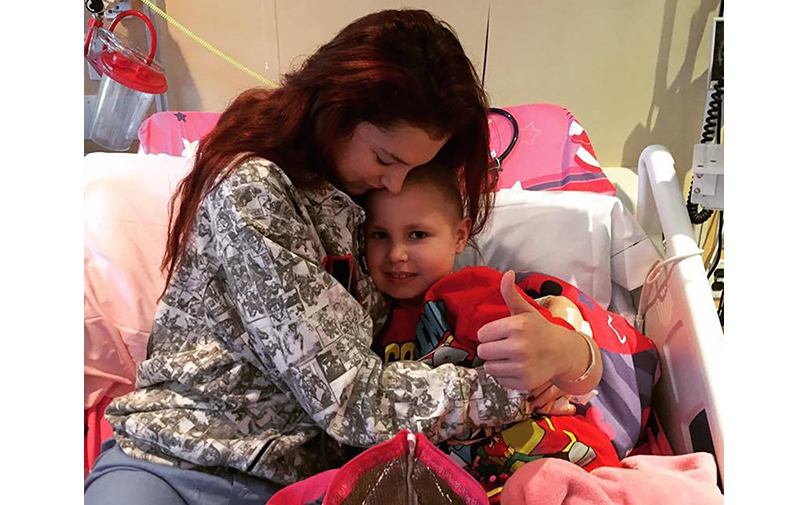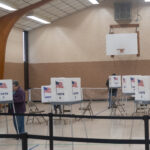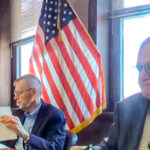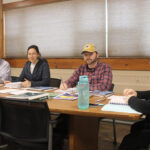
FORT KENT, Maine — When the specter of cancer arises in the midst of someone’s life, the individual and perhaps their family members may know intellectually that they will need help, but the strong independence found in so many Mainers runs counter to that knowledge.
Many people have attended spaghetti supper fundraisers, walked or run in 5K races and purchased raffle tickets in support of neighbors battling cancer. To be on the receiving end, however, is different.
“We didn’t want to accept the help, but we learned pretty quick that we needed the help,” Sheri Thibodeau Albert of Fort Kent said recently, when recounting how she and her husband Michael began dealing with their daughter’s cancer diagnosis in 2012.
“People are wanting to help and willing to help. The community support was amazing and that help came immediately,” she said.
Breast cancer awareness takes center stage in the month of October, but coping with any type of cancer requires resilience, acceptance and no small amount of grace.
Kearston Albert was only 3 years old when she was diagnosed with acute lymphoblastic leukemia. Since that time, she and her family have regularly traversed back and forth to Bangor and beyond for treatments, including a bone marrow transplant from Kearston’s older sister, Robin.
With four children, most of whom were still very young at the time, the Alberts had to find ways to balance the many challenges that accompanied dealing with the types of treatments their daughter was receiving.
Long stretches away from home, a need to maintain as normal a routine as possible and the often steep financial burdens are among the stressors that weigh heavy on the minds of those living with any sort of cancer.
“Take all the help that’s offered — meals, cleaning, laundry — just to take the time to focus on healing yourself,” Sheri Albert said.
For the Alberts, their faith and a large number of relatives and friends have offered solace and support during the past few years.
“Some advice given to us at the beginning, and this is key, is don’t dwell on the negative. Focus on the positive all the time,” Albert said.
She said the social workers at the hospitals Keaston spent a lot of time at helped them immensely.
“Once you have your social worker, they are trained to guide and assist you,” she said.
Social workers and other advocates are not just for young children or parents. Adult patients dealing with breast cancer or any cancer diagnosis will likely find the knowledge, support and insights of these trained people invaluable.
Being knowledgeable about the specific cancer and treatment options also is important, according Albert.
“Michael did a lot of research,” Albert said. “But, you need to know where to go, like medical research journals.”
This is where healthcare providers, social workers and experienced advocates can be a big help.
The Alberts also commented how helpful the Edgar J. Paradis Cancer Fund has been to their family. The Paradis fund, based in Fort Kent, offers financial assistance to families for travel to treatments, sponsors monthly support groups, hosts an annual cancer awareness education seminar, and maintains an extensive reference library on a variety of cancer-related subjects.
Since its founding in 1978, the Paradis fund has provided more than $1 million in financial support to more than 1,400 families.
For more information about the Paridis Fund, visit http://www.paradiscancerfund.org/.
Through it all, Sheri Albert has kept posting updates on social media, which also is where many people have expressed support and shared fundraising efforts.
Kearston, who is now 8 years old, is in remission. While the bone marrow transplant helped, Albert said subsequent Chimeric Antigen Receptor or “CAR” T-Cell therapy was a major factor in saving her daughter’s life after the cancer came back last year.
During the interview on Sept. 27, the Alberts were traveling to see a specialist in Philadelphia, where Kearston was to undergo bone marrow and spinal fluid testing.
“So far the ‘Iron Man’ T-Cells are doing their job,” Albert said from the road. “Prayers and or good thoughts would be welcome.”
The family has never shied away from talking about their experiences. That openness and sharing, which generates much needed communication between the Alberts and the wider community, also serves to prevent the isolation that can accompany extended struggles with diseases, such as cancer.
“We focus on the fact that our community gave so willingly and generously,” said Albert. “We never asked, but walks were done. So were other fundraisers and donations. We can’t thank them enough.”




